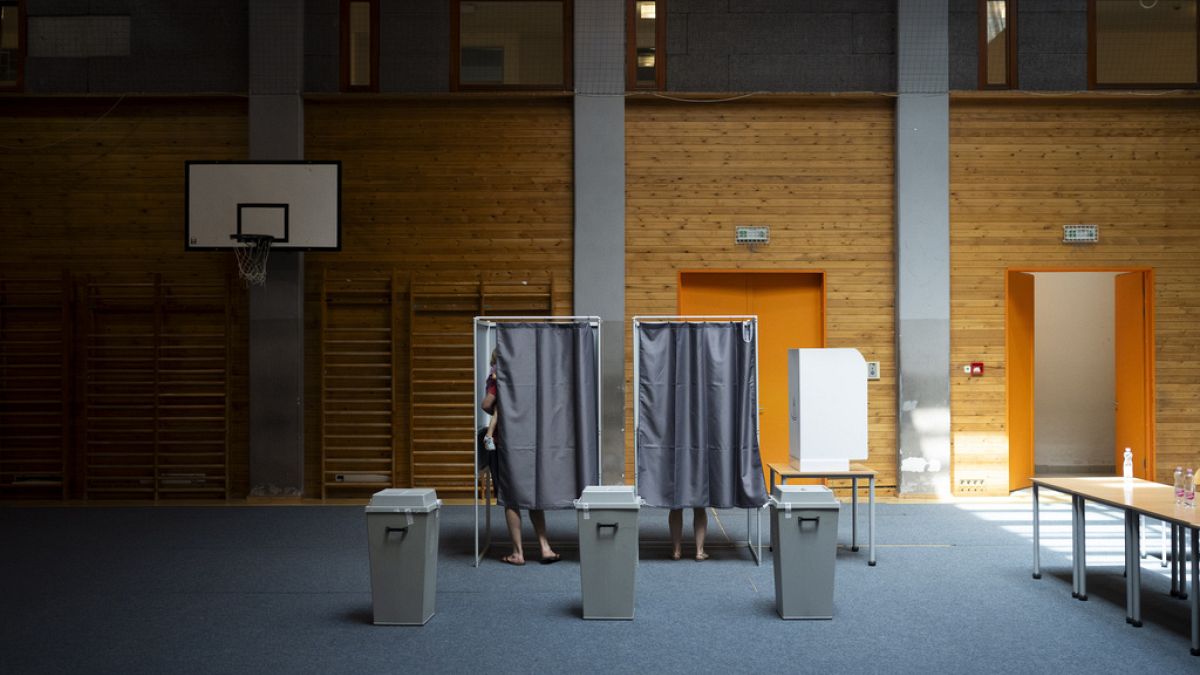European elections saw rise in turnout, but no surge

From 6 to 9 June, 357 million citizens were invited to vote to elect their representatives to the European Parliament. How many answered the call?
The 2024 European elections were more critical than ever, serving as a barometer of public opinion across the 27 member states. Crucial issues such as climate change, the future of the European Green Deal, post-COVID-19 economic recovery, migration, and the EU’s role on the global stage were on the agenda.
In the end, the European Parliament saw a shift to the right, but centrist parties still hold the majority. How many answered the call to vote and supported this shift?
Highest turnout in 30 years
2024 saw the highest voter turnout in 30 years, with 50.97% of the 357 million eligible citizens participating in the election. This is a slight increase compared to the previous elections in 2019 (50.66%), suggesting the politically charged context served as a catalyst for participation.
On closer examination, not all countries were equally responsive to the European elections, however.
Surge in participation
Thirteen countries experienced an increase in voter turnout compared to 2019:
- Belgium (where voting is compulsory, +1.35 points)
- Germany (+3.4 points)
- Ireland (+0.14 points)
- France (+1.38 points)
- Netherlands (+4.27 points)
- Portugal (+5.79 points)
- Czech Republic (+7.73 points)
- Cyprus (+14,87 points)
- Estonia (+0.1 points)
- Latvia (+0.29 points)
- Malta (+0.3 points)
- Romania (+1.22 points)
Hungary saw the most significant increase in turnout (+15.93 points). Fidesz, the party of Hungary’s leader Viktor Orban, who is hostile to EU policies, came in first but the party recorded its lowest ever score in the European elections with 45%, losing three seats in the Parliament. It was his opponent, Peter Magyar from TISZA (potential EPP group member), who benefited from this increase in participation.
Decline in participation
More countries, however, experienced a drop in participation, totalling fourteen:
- Denmark (-7.84 points)
- Italy (-6.2 points)
- Luxembourg (-1.92 points)
- Greece (-17.3 points)
- Spain (-11.52 points)
- Sweden (-4.57 points)
- Austria (-3.5 points)
- Finland (-0.4 points)
- Poland (-5.03 points)
- Slovenia (-12.56 points)
- Slovakia (-11.64 points)
- Croatia (-8.51 points)
It’s worth noting that despite having mandatory voting laws that could lead to sanctions, Bulgaria, Greece, and Luxembourg saw declines in voter turnout.
Lithuania experienced the largest decrease, with turnout dropping to 28.35%, a loss of 25 points compared to 2019. This can be partly attributed to the recent presidential election held on 12 and 26 May, which had a turnout of 59%.
Italy is also noteworthy. Apart from a slight increase in 2004, it has seen a continuous decline in turnout since the first election in 1979 (85.65%) to the latest in 2024 (48.3%), which for the first time fell below the 50% threshold.
Since the 2004 “Big Bang” enlargement to the East, a gap has been observed between Western and Eastern countries.
Indeed, countries that joined the European Union after 2004 tend to vote less than those that were members before 2004. However, this gap is narrowing in 2024.
Related
A New Book Argues That What Happens in Europe Doesn’t…
Remaking the World: European Distinctiveness and the Transformation of Politics, Culture, and the Economy by Jerrold Seigel “No issue in world
Poland plans military training for every adult male amid growing…
Poland’s prime minister, Donald Tusk, has said his government is working on a plan to prepare large-scale military training for every adult male in response t
2025 European Athletics Indoor Championships: Ditaji Kambundji secures women’s 60m…
Switzerland’s Ditaji Kambundji walked away from the 2025 European Athletics Indoor Championships in Apeldoorn on 7 March with much more than her first Europea
Takeaways from the EU’s landmark security summit after Trump said…
BRUSSELS (AP) — European Union leaders are trumpeting their endorsement of a plan to free up hundreds of billions of








